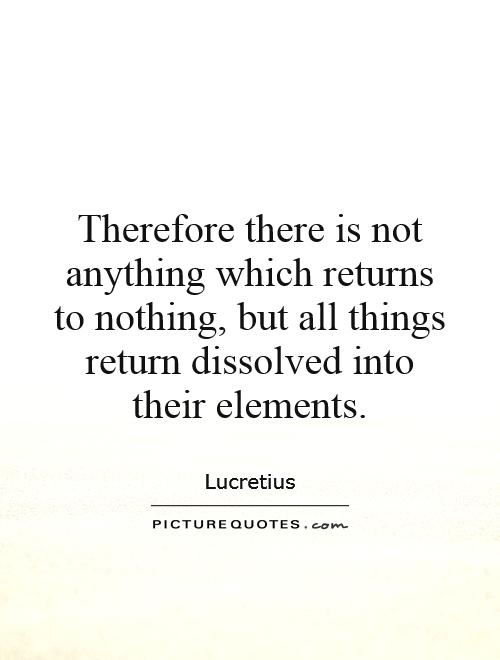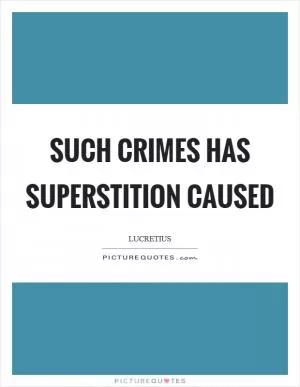Therefore there is not anything which returns to nothing, but all things return dissolved into their elements

Therefore there is not anything which returns to nothing, but all things return dissolved into their elements
The quote "Therefore there is not anything which returns to nothing, but all things return dissolved into their elements" is a profound statement made by the Roman poet and philosopher Lucretius in his epic poem "De Rerum Natura" (On the Nature of Things). In this work, Lucretius explores the principles of Epicurean philosophy, which emphasizes the pursuit of pleasure and the avoidance of pain as the highest good in life.The quote reflects Lucretius' belief in the eternal nature of matter and the cyclical nature of the universe. According to Lucretius, nothing in the universe truly ceases to exist; instead, all things are constantly changing and transforming, returning to their elemental components. This idea is closely tied to the concept of atomism, which posits that all matter is made up of indivisible particles called atoms that combine and recombine to form the physical world.
Lucretius' assertion that all things return to their elements can be interpreted in both a literal and metaphorical sense. On a literal level, he is referring to the physical decomposition of living beings after death, as their bodies break down and return to the earth. This process of dissolution and decay is a natural part of the cycle of life and death, and serves as a reminder of the impermanence of all things.
Metaphorically, the quote can also be seen as a reflection on the impermanence of human achievements and the fleeting nature of worldly possessions. Lucretius suggests that material wealth and power are ultimately transitory, and that true fulfillment can only be found in the pursuit of knowledge and wisdom. By recognizing the ephemeral nature of physical existence, individuals can cultivate a deeper appreciation for the beauty and complexity of the natural world.
Overall, Lucretius' quote serves as a powerful reminder of the interconnectedness of all things and the inevitability of change. By embracing the cyclical nature of existence, individuals can gain a greater sense of perspective and find solace in the knowledge that nothing is truly lost, but rather transformed into something new.












 Friendship Quotes
Friendship Quotes Love Quotes
Love Quotes Life Quotes
Life Quotes Funny Quotes
Funny Quotes Motivational Quotes
Motivational Quotes Inspirational Quotes
Inspirational Quotes